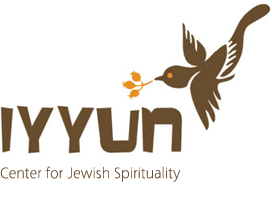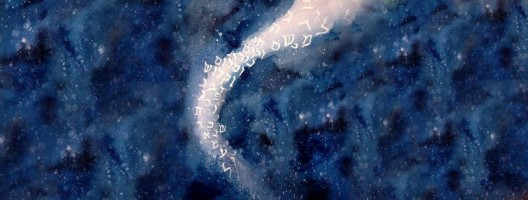Every time we promise and say we will or will not do this or that, we create a form of reality through our words. Therefore when our actions do not match that reality, an emptiness results. Vows uttered but not fulfilled are empty, lacking vessels of fulfillment. And in order to repair this lack—in order to build the necessary vessels— we need to remedy how we speak. We begin by becoming conscious of our words.
This lack and need to fix it becomes acutely apparent on Rosh Hashanah when we seek to make God our King. Kingship (malchut) is intricately bound up with speech since a king commands, and his decrees define his kingdom. When we correct our own speech, our own internal personal nobility, we ensure a proper relationship between our words and their end result. And by keeping our vows and promises, we are helping to build God’s kingdom on a cosmic level.
Every year on Rosh Hashanah, God’s desire to create the world is renewed. Every year on this day, there is expressed—on a cosmic level—God’s renewed desire for kingship.
On the night of Rosh Hashanah, there is a hush—a supernal slumber—since God’s desire to create and Divine kingship are in a state of retrenchment/contraction. It is as if the universe has inhaled and is waiting. This pause allows for renewed evaluation and accounting. It is why Rosh Hashanah is known as the “Day of Judgment”—on this day, God evaluates if creation shall continue to be, and if so, how it shall continue to be.
According to Kabbalah, God’s tools of creation are the ten sefirot—ten spheres or channels of Divine energy through which He created the world and which continue to permeate all reality. These ten are: keter (literally “crown” but which manifests as desire and will); chochmah (wisdom and intuition); binah (understanding and cognition); chesed (kindness and love); gevurah (strength and restraint); tiferet (beauty and compassion); netzach (victory and endurance); hod (thanksgiving and humility); yesod (foundation and connection); and malchut (kingship and respectability).
These ten behave like a hologram, each one reflecting itself as well as the other nine, and they are further grouped into five partzufim (personae or profiles). The lowest partzuf in this great chain is malchut, as it represents both the receiver and the vessel that contains the flow. Every year, before the blowing of the shofar on Rosh Hashanah, malchut is merely a single point, not yet developed into a ten-faceted reality, and it is only the arousal by us from below that inspires the building of malchut into a full partzuf.
The ten days from Rosh Hashanah until Yom Kippur reflect the ten sefirot which we are fixing. On each day, we seek to build malchut within another sefirah.
Blowing the shofar expresses our deepest cry to God; it awakens a response from above and completes malchut. God once again renews a desire to continue to be our king—to create, sustain, nourish us with blessings.
Correcting our speech is an important part of this process of building malchut, because speech creates. When God said “let there be light,” there was light—the process was immediate, and the effects of Divine speech were externalized and felt in a palpable way. Whereas some more primordial forms of creation emerged through direct speech, and others through more complicated and detailed word combinations and permutations, all in all, everything was—and is—created through Divine speech, which is an expression of malchut.
On a personal level, all our speech creates, too, affecting both the present and future and impacting the past. Words spoken assume a life of their own and reverberate through all creation, and vows, in particular, are the closest we come to Divine creative speech. Once uttered, vows demand that we act upon them physically. With the power of our speech, we create a condition which demands follow through in our actions.
While aspiring to build the cosmic sefirah of malchut, we are to do our part building, correcting and putting in order our own malchut—that is, our own speech, particularly that speech which is most closely associated with actions.
This also allows us to understand the deeper reason why on the day of Rosh Hashanah, we spend so much time in prayer. The prayers of the High Holidays are much longer then those on the average day of the week, and even considerably longer than most other holidays. Through them, we are aspiring to correct and build our malchut, using Divine words fueled by our own heartfelt intentions.







